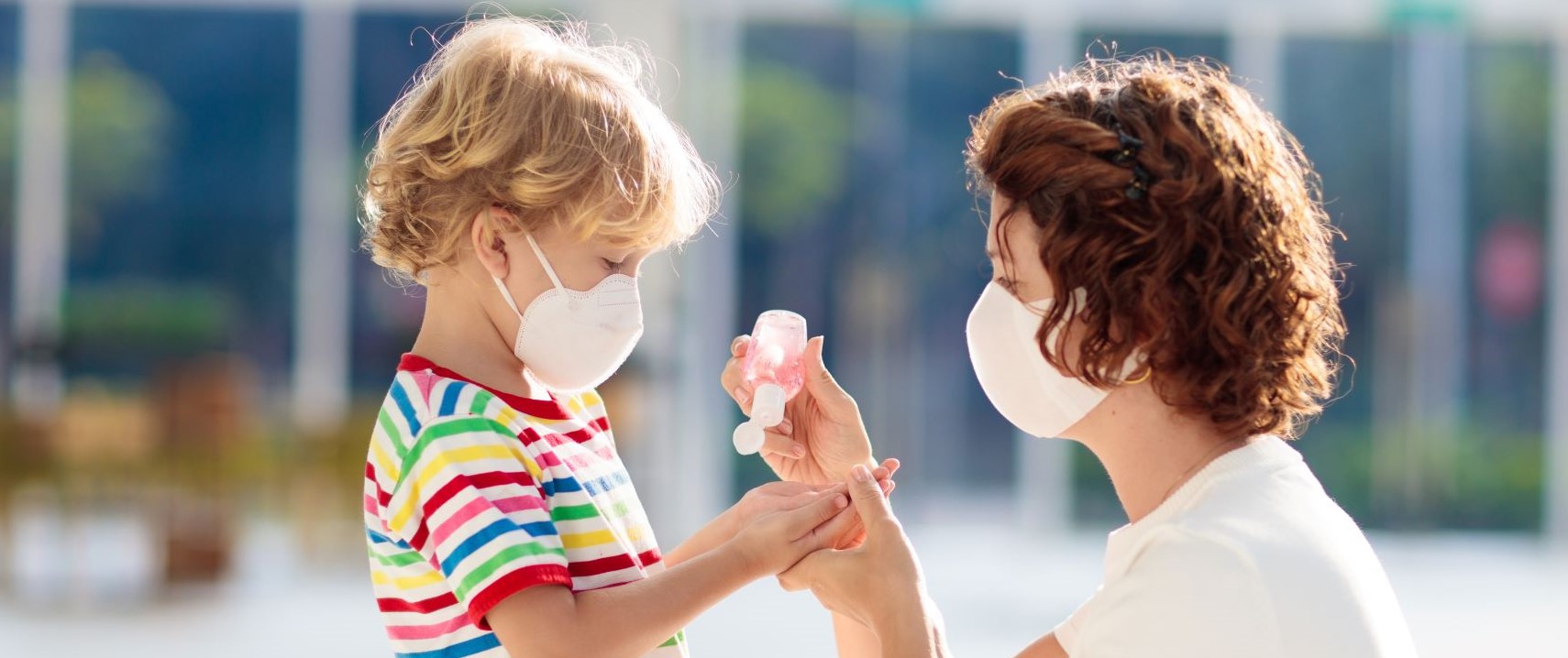- About May
- Training
- Research
- Careers
- News & Events
- Locations
- Notice of Data Privacy Event
- Donate
- EI and ABA Children's Services
- Autism Schools
- Brain Injury School
- PBIS and School-based Services
- Adult Services
- National Autism Center & Global Services
Categories: ASD and DD, Child-focused; COVID-19 Topics

By Jenna Garvey, M.Ed., LABA, BCBA
[This column was published in The West Springfield Republican on 6/25/20.]
During COVID-19, we’ve all had to make changes to our daily routines. This includes wearing masks as a part of daily life. However, some individuals with autism may not understand why we’re all suddenly wearing face coverings. Others may have sensory issues that make mask-wearing uncomfortable. Here are some guidelines for helping your child with autism tolerate wearing a mask.
First, to the extent appropriate for your child, consider providing information about why we are wearing masks. You may consider using a tool such as a social story – a simple narrative that provides information about a social situation using clear language and an unassuming approach, and often includes pictures. Try googling “social story mask” to find many options that may be appropriate, or that may spark some ideas for you to create a customized story for your child.
Consider possible sensory issues that may create a barrier to mask-wearing. If your child has an aversion to specific fabrics, keep this in mind as you try different options. For example, if your child has difficulty with synthetics but does better with cotton, try a cotton mask first! Same with ties. Some children will do better with over-the-ear elastic, while some may better tolerate a tie at the back of the head. Also consider use of a gaiter – a cloth neck covering that can be pulled up over the face and, in some cases, has a cut-out for the ears. Wearing a gaiter will eliminate the need for elastic and ties altogether. The longer we’re living with COVID-19, the more options are hitting the market; there are far more choices available now than were available initially.
Next, think about how to make wearing a mask motivating and less scary. Work toward this goal by finding lots of practice opportunities, and reinforce your child’s tolerance of even small steps. This will vary for everyone. Some children may have to start off by wearing the mask for just a few seconds or even just picking up or touching the mask. You can then provide reinforcement (perhaps access to a preferred activity, a special treat, or tickles and hugs) for tolerating short durations. With frequent practice, you’ll increase the duration to a more functional amount of time. Consider wearing the mask around the house or during really preferred activities before jumping straight to an outing.
Finally, please keep in mind these are stressful times for us all. Masks are just one part of our new reality that includes changing expectations, disruption of routine, and unavailability of some of our favorite activities. Our children often take emotional cues from us, so try to keep stress low surrounding the need to wear a mask. We want mask-wearing to be paired with access to fun places and things, not a source of stress.
Remember Rome wasn’t built in a day! It may take some planning, practice, and praise for your child to adjust to this expectation. And if you need further assistance with this or other behavioral issues arising in the home, try asking your child’s educational team for guidance or consult a Board Certified Behavior Analyst (BCBA) for assistance.
Jenna Garvey, M.Ed., LABA, BCBA, is Clinical Director at the May Center School for Autism and Developmental Disabilities in Chicopee, Mass. She can be contacted at jgarvey@mayinstitute.org.
About May Institute
May Institute is a nonprofit organization that is a national leader in the field of applied behavior analysis and evidence-based interventions, serving autistic individuals and individuals with other developmental disabilities, brain injury, neurobehavioral disorders, and other special needs. Founded nearly 70 years ago, we provide a wide range of exceptional educational and rehabilitative services across the lifespan. May Institute operates five schools for children and adolescents with autism spectrum disorder (ASD) and other developmental disabilities, including one in Chicopee, Mass. For more information, call 800.778.7601 or visit www.mayinstitute.org.